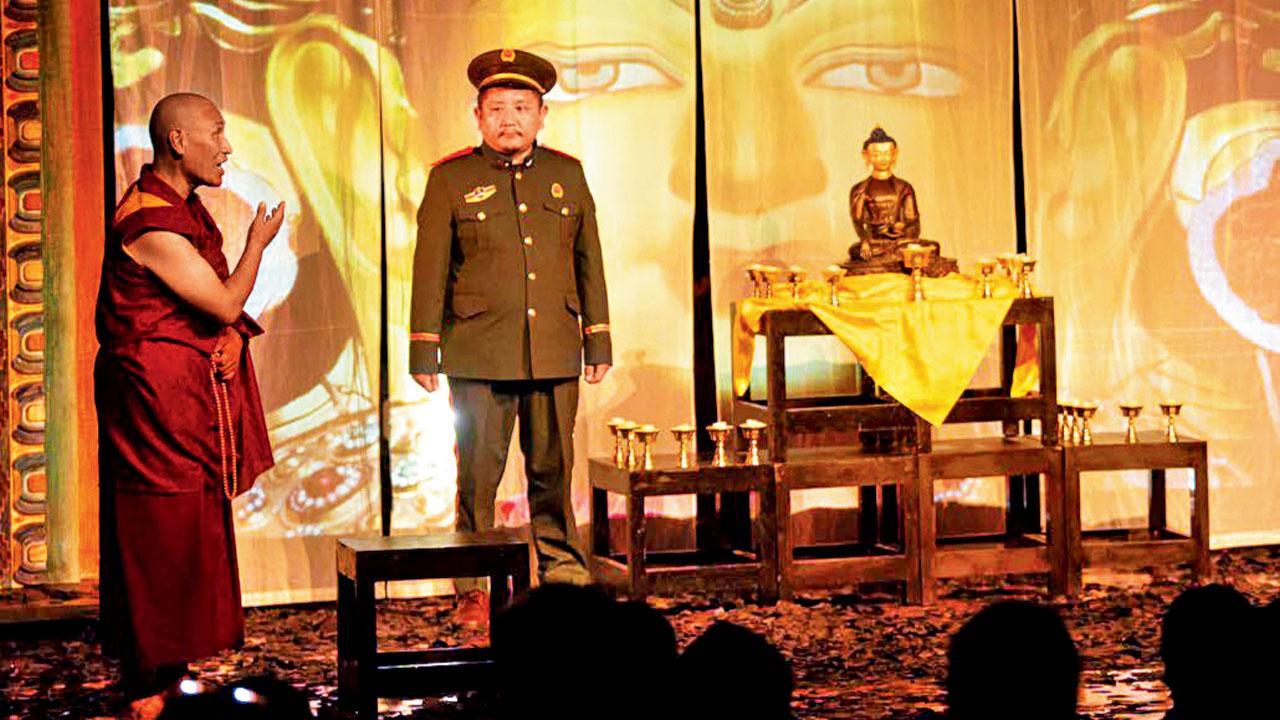Home / Mumbai-guide / Things To Do / Article /
This play brings out the importance of Buddhism in Tibetan resistance
Updated On: 24 March, 2023 09:59 AM IST | Mumbai | Suprita Mitter
The Tibetan play, Pah-Lak, explores the nature of non-violence and the importance of Buddhism in the Tibetan resistance movement

A moment from the play Pah-Lak
The stage often becomes the medium to voice opinions, raise concerns and even protest. With bold lines or subtle messaging, artistes over the years have used music, dance, storytelling and theatre to make their point. In a similar fashion, a Tibetan play called Pah-Lak (the term for father in the language) aims to narrate the story of modern Tibet and the role Buddhism plays in the lives of its people, today. The play was first conceptualised by Indian theatre director and playwright Abhishek Majumdar who developed it through rigorous research which included interviews with the Tibetan community in exile — monks, nuns, and His Holiness the 14th Dalai Lama.
 A performer in costume
A performer in costume



